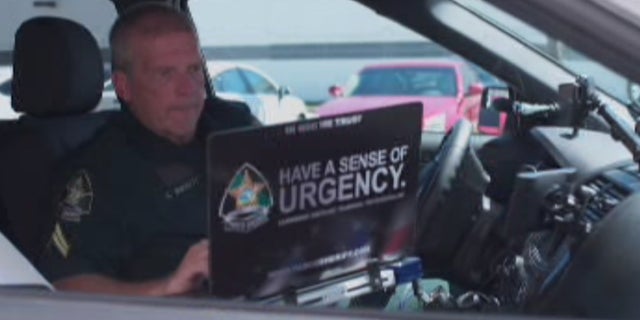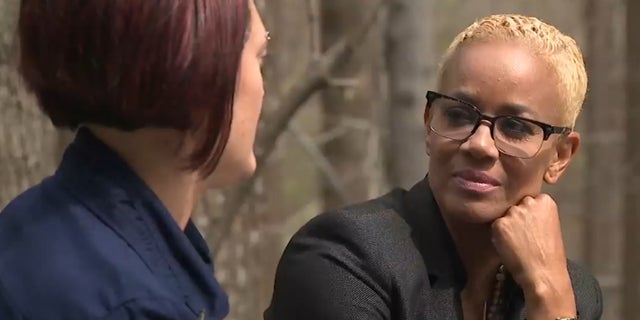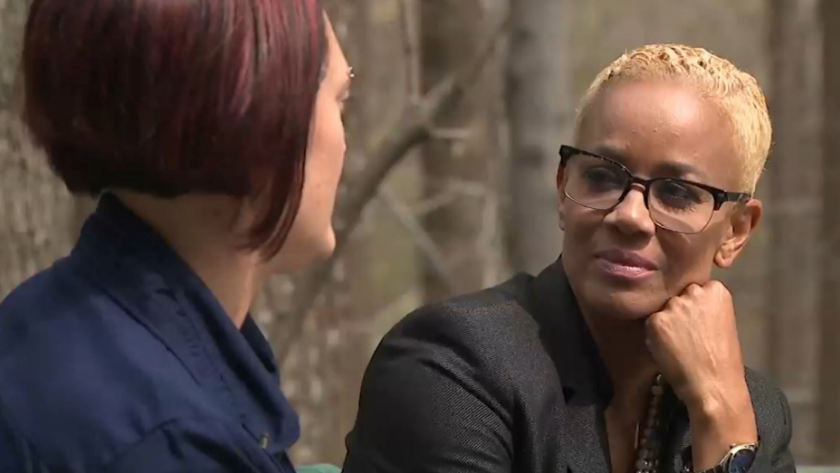Human trafficking in America among worst in world: report
By Andrew Keiper, Perry Chiaramonte | Courtesy of Fox News
Advocates working to put an end to human trafficking share their stories
What we have here is the final installment in a multi-part investigative series on human trafficking by Fox News. Anyone who knows me knows that I am not a fan of mainstream media, and the list starts with Fox news. However, in this instance, I will use the information they have gathered to bring home a massive point.
Long before human trafficking and sex trafficking became frontpage news, it has been a problem. The nefarious force that is now commonly referred to as human trafficking/sex trafficking has been a dynamic and destructive mechanism within our society for decades. Admittedly, the force has grown more prolific in the last couple of decades and the numbers bear this out.
As efforts to educate the public continue to rise, so does the number of reported instances of human trafficking. People are learning that human and sex trafficking extends beyond those who are kidnapped, drugged and sold on the Black Market. Many victims are being trafficked by the very ones who should be protecting them. The original estimation of the global impact of human trafficking, which was already an astounding 25 million is now estimated to exceed 45 million.
Human trafficking is an economy within itself, and now exceeds the annual global revenue generated by drug trafficking — ranking second only to weapons trafficking.
At The Odyssey Project, my wife Marion and I work on a number of social fronts within Black and impoverished communities. With Marion being a survivor or CSA (childhood sexual abuse), she has become a strong advocate for those who have become victims in any way. We both have committed to being resources in the fight to end human trafficking of any kind.
Recovery and healing for survivors is a long and challenging process, but we are lending our experience and expertise to the cause. We are also committing resources to efforts to rescue victims. I challenge everyone who reads this piece to become a part of the solutions. ~ Rick Wallace, Ph.D., Psy.D.
‘Fox Report’s’ in-depth coverage of the human trafficking crisis continues.
The United States is again ranked as one of the worst countries in the world for human trafficking. According to a recently released report by the State Department, the top three nations of origin for victims of human trafficking in 2018 were the United States, Mexico and the Philippines.
Secretary of State Mike Pompeo delivered the Trafficking in Persons report, which is created annually by the State Department to document human trafficking in the year prior, and highlighted the growing focus that government agencies and nonprofit organizations have dedicated to stopping human trafficking. The Department of Justice provided more than $31 million for 45 victim service providers that offered services to trafficking survivors across the country. It was a demonstrable increase; the DOJ only provided $16 million to 18 organizations in 2017, according to the report.
At the heart of the human trafficking trade in America is simple economics: Supply and demand.
Over the last two months, Fox News has investigated human trafficking. We followed the enforcement efforts of FBI agents and police officers, documented the ways advocacy groups protect and serve survivors, and heard heart-wrenching stories of abuse, rape and recovery from numerous victims.
Get Your Signed Copy of Born in Captivity!

“The United States is the number one consumer of sex worldwide. So we are driving the demand as a society.”— Geoff Rogers, co-founder of the United States Institute Against Human Trafficking
If there’s one takeaway from our reporting, it’s that the industry is fueled by an unceasing demand. It’s here that officers focus their enforcement actions. And it’s where advocates focus their education efforts to end the illicit trade.
“We have a major issue here in the United States” Geoff Rogers, co-founder of the United States Institute Against Human Trafficking (USIAHT), said in an interview with Fox News. “The United States is the No. 1 consumer of sex worldwide. So we are driving the demand as a society.”
In 2018, the DOJ began 230 federal human trafficking prosecutions, a drop from 282 in 2017. Federal convictions rose from 499 in 2017 to 526 in 2018. More than 70 percent of the cases resulted in jail sentences of more than five years, according to the State Department report.
“These are American kids, American born, 50% to 60% of them coming out of the foster care industry.”— Geoff Rogers
“We’re also driving the demand with our own people, with our own kids,” Rogers said. “So there are tremendous numbers of kids, a multitude of kids that are being sold as sex slaves today in America. These are American kids, American-born, 50 percent to 60 percent of them coming out of the foster care industry.”
This assertion is confirmed by the State Department’s report, which found that children in foster care, homeless youth, undocumented immigrant children and those with substance abuse problems were especially at risk to fall into the human trafficking trap.
Rogers says that because the demand is so great in the U.S., traffickers are filling that demand with an increased supply of forced sex workers.
“So the demand here in the United States is a global one,” he said. “We do have men traveling the globe to go to places like Thailand and other places in East Asia to purchase sex with kids. But, in fact, the demand is so great that the supply has needed to be filled here in the United States.”
“Because of the demand, then these traffickers are filling that demand with supply. And the demand is so great here in the United States that they’re filling the supply with our very own kids,” Rogers continued.
According to a U.S. Department of Health and Human Services report, over 300,000 of America’s young population is considered at risk for sexual exploitation. It’s also estimated that 199,000 incidents occur within the U.S. each year.
Corporal Alan Wilkett, of the Pasco County Sheriff’s Office in Florida, operates their local Human Trafficking Task Force. He believes the best way to combat the trade is to quell the demand.

Pasco County Sheriff’s Corporal Alan Wilkett uses his laptop from his service vehicle.
“Historically, we’ve allowed the sex buyer to hide behind a mask of anonymity and actually call them a ‘John,’” He said in an interview with Fox News. “We don’t even call them by their name, because we let them stay behind that mask. And the only way we’re going to attack the supply side is by going after the demand. And that means the sex buyer needs to be held culpable for the damage and trauma that he or she is causing.”
“Trafficking in America, if you are trafficked in the United States, 85 percent of victims that are trafficked here are from here.”— Brook Bello, founder of More Too Life
While Wilkett and other law enforcement officers focus on arrests and sting operations, leaders in the nonprofit realm take a more holistic approach to healing survivors. Brook Bello, the founder of anti-trafficking organization More Too Life in Florida, focuses on helping develop skills to lead a successful post-trafficking life.
“We work with victims that are 3 years old and up,” Bello said. “The average victim that we work with, that’s over 18, started being raped at three. Trafficking in America, if you are trafficked in the United States, 85 percent of victims that are trafficked here are from here.”
The State Department’s report similarly echoes the domestic nature of sex trafficking in the United States. Despite the growing focus and concern surrounding human trafficking, gaps exist that leave victims and survivors without the care and resources they need to build a life beyond the abuse.

Brook Bello, founder of More Too Life in Florida, speaks with another woman.
“Advocates reported a significant lack of services available for men, boys, and LGBTI individuals and noted continued concern that some federal funding opportunities no longer highlight the need for services for LGBTI individuals,” the State Department said in its Trafficking in Persons report. “NGOs and survivor advocates continued to report insufficient access to emergency shelter, transitional housing, and long-term housing options for trafficking victims.”
Progress has been made on this front, but too often too many kids can’t fight their way out of the clutches of their traffickers. In cities across the nation, and along the highways that connect them, police and advocates continue their fight to eradicate human trafficking and heal those who survived.
This is the last article of a six part Fox News investigation into human trafficking in America. You can see the previous five television segments and articles here, One, Two, Three, Four, and Five.
If you are being trafficked or suspect that someone you know is being trafficked contact The National Center for Missing and Exploited Children at 1-800-THE-LOST or CYBERTIPLINE.ORG.
Support the work of The Odyssey Project and its community programs, including the Black Men Lead rite of passage program for young Black males, Restoring Ghettos Forgotten Daughters, Music is Life, Financial Literacy 101 & Beyond, and more at https://www.theodysseyproject21.top/donate or you can
contribute directly through the Cash app at $TheOdysseyProject21

